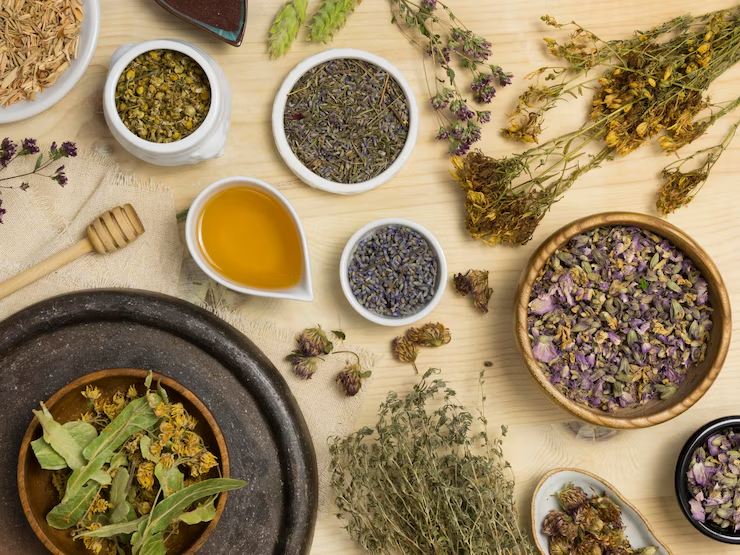Clinical herbalism is the practice of using plants and plant extracts to promote health and well-being. It involves evaluating and addressing health concerns through the use of herbal remedies. Holistic in nature, clinical herbalism looks at the whole person rather than just individual symptoms. Herbalists use a combination of knowledge, experience, and intuition to create custom treatment plans for their clients.
Misconception 1: Herbal remedies are not as effective as modern medicine.
Many people believe herbal remedies are less effective than modern medicine, but research shows some herbs can be beneficial. For example, St. John’s Wort is used for mild to moderate depression, while Garlic has antibacterial properties. It’s important to consult with a healthcare provider before using herbal remedies, especially if you’re taking other medications to avoid interactions.
Misconception 2: Clinical herbalism is not backed by scientific research.
Clinical herbalism is indeed supported by scientific research. Many studies have demonstrated the effectiveness of herbs in treating various health conditions. Research has shown that herbal remedies can be beneficial for a wide range of ailments, from common colds to chronic conditions. Scientists continue to study the therapeutic properties of herbs, further validating their use in clinical herbalism.
Misconception 3: Clinical herbalism is only for minor health issues.
Clinical herbalism is not just limited to minor health issues. Practitioners of clinical herbalism are trained to address a wide range of health conditions, both acute and chronic. They have the knowledge and skills to create customized herbal remedies tailored to individual needs and health concerns. Herbalists can work alongside conventional healthcare providers to support overall health and well-being.
Misconception 4: Herbal remedies are unsafe and unregulated.
It is a common belief that herbal remedies are unsafe and unregulated. However, herbal products in the United States are regulated by the FDA under dietary supplement laws. Some herbal remedies can interact with medications or have side effects, so it is important to consult with a qualified healthcare provider before use.

Misconception 5: Clinical herbalists are not well-trained healthcare professionals.
Clinical herbalists undergo extensive training to become well-versed healthcare professionals. Many herbalists have formal education from reputable institutions and certifications from recognized organizations. They possess in-depth knowledge of botany, pharmacology, and holistic health practices. Some herbalists even collaborate with medical doctors to complement traditional treatments with herbal remedies for a well-rounded approach to healthcare.
Debunking misconception 1: Scientific evidence supporting the effectiveness of herbal remedies.
There is scientific evidence supporting the effectiveness of herbal remedies. Research has shown that certain herbs have properties that can help with various health conditions. Some herbs have been studied extensively and have been found to be effective in treating certain ailments. For example, studies on ginger have shown that it can help with nausea and inflammation. Similarly, research on valerian root has demonstrated its effectiveness in improving sleep quality. Therefore, it is important to understand that herbal remedies can be backed by scientific evidence and can provide benefits for health and wellness.
Debunking misconception 2: How clinical herbalism integrates traditional knowledge and modern research.
Clinical herbalism blends ancient practices with modern research to create effective treatments. Misconception 2 suggests that traditional and modern methods are separate, but in reality, they work together to offer comprehensive care. Combining the wisdom of traditional herbal knowledge with the latest scientific findings enhances the efficacy and safety of herbal remedies. This integration ensures a holistic approach to healthcare that respects both historical practices and current research standards.

Debunking misconception 3: Addressing the scope of clinical herbalism in treating various health conditions.
Clinical herbalism covers a broad range of health conditions, not just minor ailments. Herbalists often work with individuals to address chronic issues like digestive disorders, anxiety, and skin conditions. They aim to treat the root cause of the problem rather than just the symptoms. Through personalized treatment plans, herbalists provide holistic care with the goal of enhancing overall well-being.
Closing thoughts on the importance of understanding clinical herbalism accurately.
Understanding clinical herbalism accurately is crucial for making informed decisions about your health. By debunking common misconceptions, you can appreciate the benefits of incorporating herbal remedies into your wellness routine. Remember, herbalism is a valuable tool when practiced safely and with proper knowledge. Make sure to consult with a qualified herbalist or healthcare provider like Sage for guidance tailored to your specific needs.
